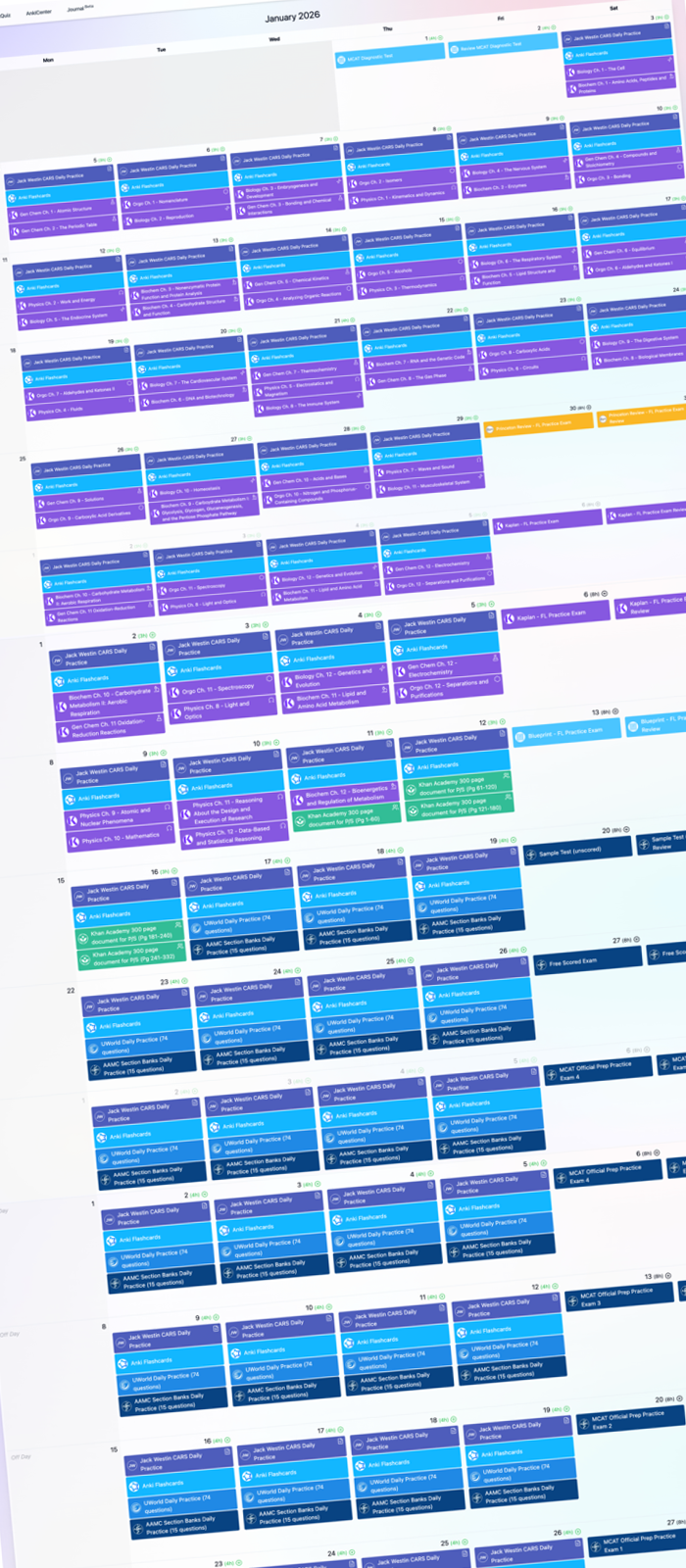What Makes a Great MCAT Study Plan? Tips to Build One That Actually Works
Published on Mar 9, 2025
A solid MCAT study plan can be the difference between feeling overwhelmed and feeling confident on test day. But what exactly makes a good MCAT study plan? It’s not just about putting in hours — it’s about strategy, consistency, and balance.
1. Personalized to Your Timeline
Everyone’s starting point and schedule are different. A good study plan fits your timeline — whether you’re studying for 3 months or 6 months. The key is to map out your hours in a way that’s realistic and sustainable.
2. Diagnostic First
A great plan always starts with a diagnostic test. Knowing your strengths and weaknesses upfront helps you prioritize what to focus on — instead of wasting time reviewing what you already know.
3. Balanced Content Review + Practice
The best study plans balance content review and practice questions. Aim to spend:
- First 1–1.5 months on content review (if you’re studying for 3+ months)
- Majority of your time on practice questions and full-length exams
4. Weekly Practice Exams
You should take at least one full-length practice exam every week once you’re a few weeks into studying. This helps you simulate test day, track your progress, and adjust your plan as needed.
5. Flexible but Structured
A good plan isn’t set in stone — it adjusts as you improve. If you’re consistently scoring well in one section, shift your time to weaker areas.
6. Time for Review
Don’t just take practice tests — spend time reviewing every exam and question set. Understanding your mistakes is where the real learning happens.
7. Consistent Schedule
Consistency matters more than cramming. It’s better to study 3–5 hours a day consistently than to pull all-nighters once a week.
Build Your Own Study Plan for Free
The best part? You don’t have to build your plan from scratch. At MCAT.Tools, you can create a personalized MCAT study plan for free — customized to your timeline, strengths, and schedule.
Final Thoughts
A good MCAT study plan is personalized, balanced, and flexible — with a heavy focus on practice. Whether you’re starting months in advance or on a tight timeline, sticking to a structured plan will set you up for success.
Ready to build your plan? Get started for free at MCAT.Tools!

